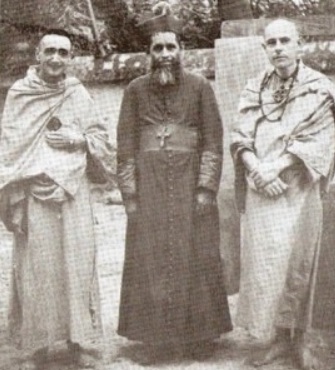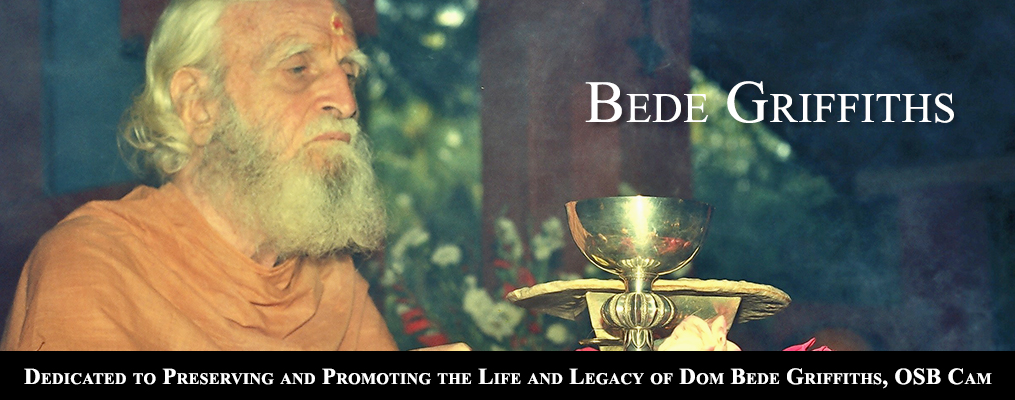origins, the three pioneers
 The Second Vatican Council, in its “Declaration on Non-Christian Religions” (Nostra Aetate), taught that “the Church rejects nothing that is true and holy in [other] religions,” and encouraged Catholics to “recognize, preserve and promote the spiritual and moral values as well as the social and cultural values to be found among them.” Following this direction, the All India Seminar in 1969, which was attended by the hierarchy and representatives of the whole Catholic Church in India, spoke of the “wealth of truth, goodness and beauty in India’s religious tradition” as “God’s gift to our nation from ancient times.” The seminar showed the need of a liturgy “closely related to the Indian cultural tradition,” and theology “lived and pondered in the vital context of the Indian spiritual tradition.” In particular, the need was expressed to establish authentic forms of monastic life in keeping with the best traditions of the Church and spiritual heritage of India.
The Second Vatican Council, in its “Declaration on Non-Christian Religions” (Nostra Aetate), taught that “the Church rejects nothing that is true and holy in [other] religions,” and encouraged Catholics to “recognize, preserve and promote the spiritual and moral values as well as the social and cultural values to be found among them.” Following this direction, the All India Seminar in 1969, which was attended by the hierarchy and representatives of the whole Catholic Church in India, spoke of the “wealth of truth, goodness and beauty in India’s religious tradition” as “God’s gift to our nation from ancient times.” The seminar showed the need of a liturgy “closely related to the Indian cultural tradition,” and theology “lived and pondered in the vital context of the Indian spiritual tradition.” In particular, the need was expressed to establish authentic forms of monastic life in keeping with the best traditions of the Church and spiritual heritage of India.
